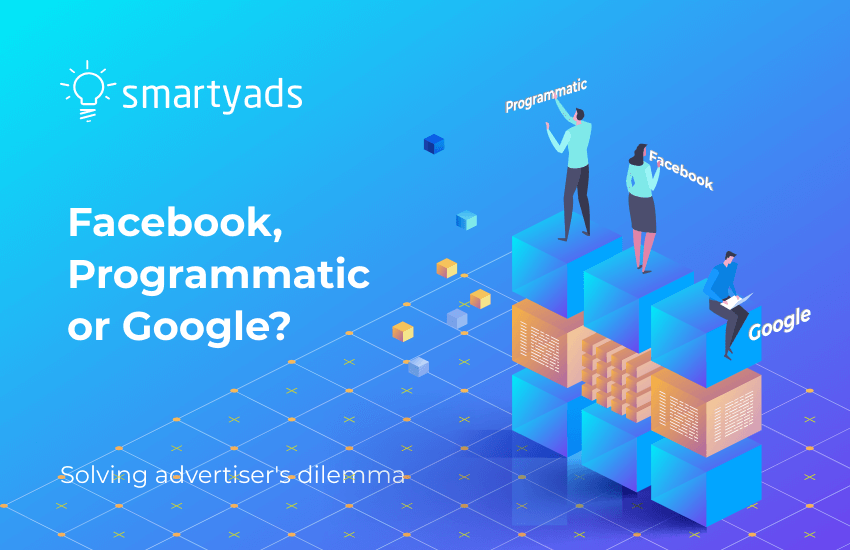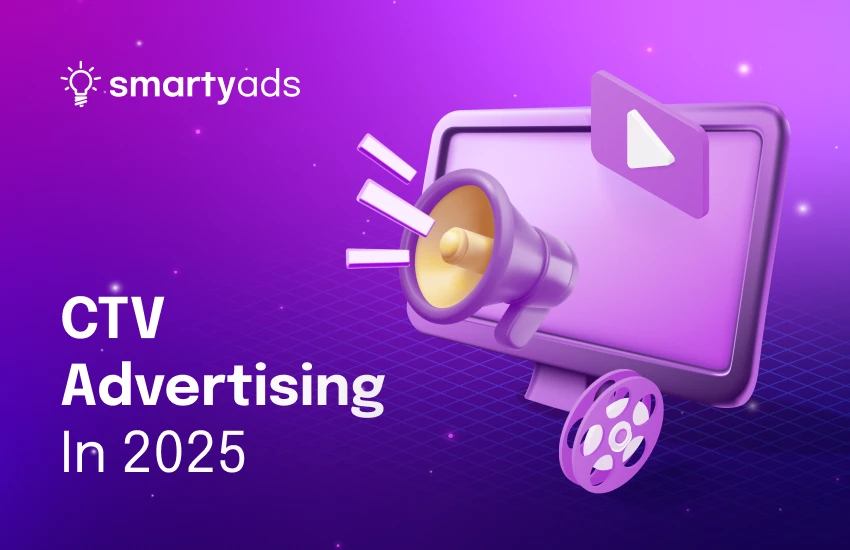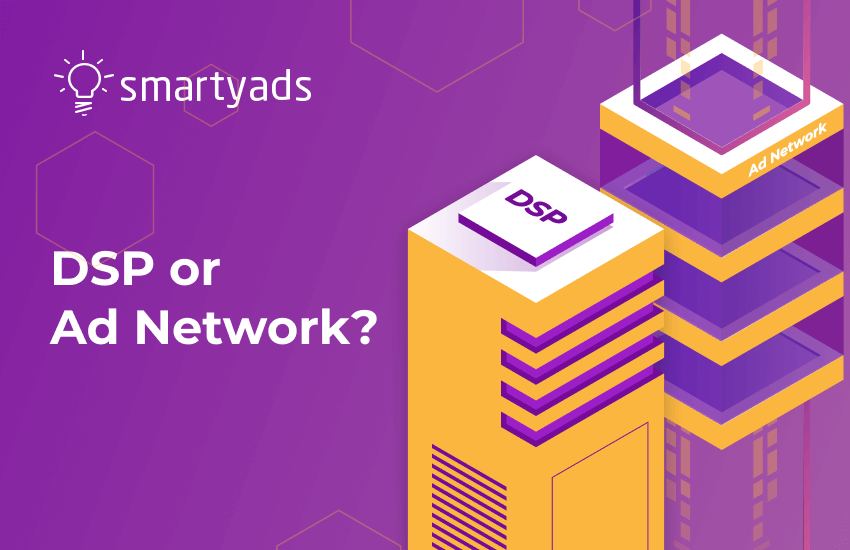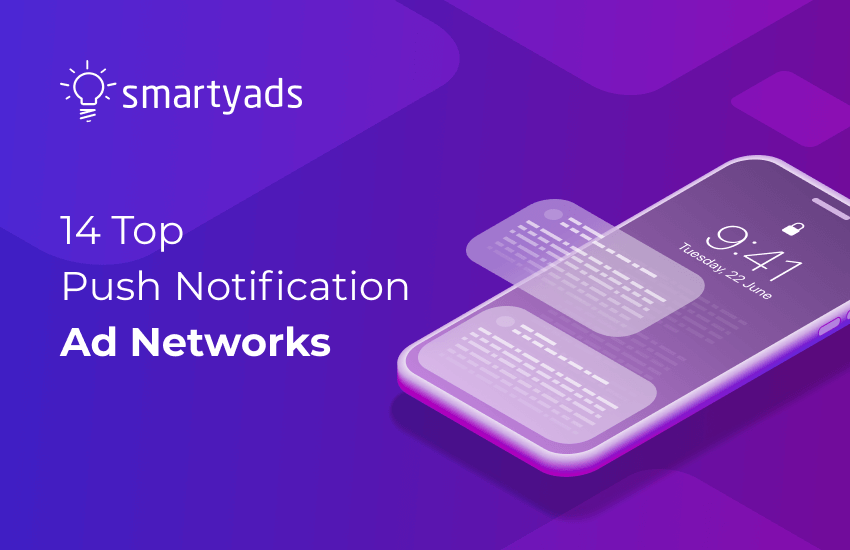Facebook, Google Ads and programmatic are three powerful but different advertising tools. So, what platform is the best to advertise your products or services? The devil is in detail, and if you take a look at them closely, you will find out that all three options are good. However, each one may be better than the other depending on campaign goals. We’ve been talking to cybersecurity researchers who shared their opinion. He recommends advertising on Google Ads rather than Facebook Ads because:
- Google receives over a million searches every day.
- Google offers you questions that can assist you in driving related traffic to your website.
- You can get repeat visitors if you target the right keyword that is relevant to the content of your website.
- You may also target users based on their preferences. The content of your website can also be shown in Google Discover, where users can scroll to read what they're interested in.
Let's dive deeper to inspect the capabilities of these platforms so that you know where campaign launching is most beneficial.

Facebook: Sophisticated targeting based on social behavior
Social media can help businesses grow and the impact of those on advertising can’t be underestimated. Monthly traffic on FB has exceeded billions of visitors. In fact, October’s digital report found Facebook's advertising audience reached 2.14 billion people in 2020. With such impressive data, it's no surprise that Facebook Ads is so popular among advertisers and business owners.
Probably the biggest advantage of the Facebook Ad platform is user data. Social media collects information about customer social behavior. On a social media platform, such as Facebook, people leave much more information than they realize - geolocation, birth date, likes and other details that can characterize them as customers. Online behavior has a huge impact on buying decisions, and that’s why this information is so important.
Because of its sophisticated targeting, Facebook Ads remain popular among small and medium businesses. Facebook’s targeting algorithms use behavioral data and interpret it to find audiences that might be most interested in buying this or that product. On Facebook, advertisers can choose from different FB ad formats that are placed within this social media (mainly in social feeds but not only): video, image, carousel, collection and a full-screen experience.
Google: Traffic from trillions of requests
Google is the search engine that is used by over 70% of Internet users. In 2021, it daily processed 2 trillion Google requests, including commercials. Google Ads is one of the largest and most popular pay-per-click advertising platforms. Technically, other search engines could create their own advertising platforms; however, Google is used so often that such competition would make no sense. This is why Google Ad platform has access to much larger audiences compared to Facebook.
Google Ads offers contextual ad placement on Google pages and websites in any display network that partner with Google. In this case, targeting is available according to various options, such as geolocation or preferences. Serving ads is possible in many Google services (e.g. Google Discovery) where ads can be fitted natively among a user’s feed.
Google Ads also allows business owners to target users based on a search query, also known as keywords. These ads appear at the top of the search result page when the user looks up a particular term. This way, the ad (promoted website) appears at the top of the search results when the particular user enters the relevant term that the advertiser paid for.
Unlike these Google paid search ads, Facebook Ads are not based on a user's request. Facebook provides a wide range of targeting options, like Google, but also allows an advertiser to target users based on their behavior, likes and dislikes. For these reasons, you need to make sure you really know your clients before starting an ad campaign on Google search.
Also, read more about google display network vs programmatic and their similarities and differences.

Programmatic: Broadest reach and personalization
Programmatic advertising is represented by technological platforms (demand-side platforms or DSPs) designed for automated media buying. Just like Facebook and Google Ads, programmatic takes into account the targeting data before making a decision whether or not to serve an ad to a particular user. If the user characteristics match campaign targeting, the DSP participates in a real-time bidding auction. Then, the highest bid wins, and the ad of the winner is served to the user. The whole process including ad serving is happening in a fraction of a second.
Programmatic advertising is very efficient - that’s why more than 88% of all digital display spending will belong to it by the end of 2021. Programmatic technology has found application not only in online space but also on TV -- Internet-connected Smart TV sets also support programmatic. Thanks to this, while streaming the same shows, each household can actually see different ads, suited specifically to their interests.
While Google Ads runs the auction exclusively on its own exchange and only works with inventory and data from Google, many programmatic DSPs can provide access to both the Google Display Network ad inventory and other ad exchanges connected to RTB. For this reason, and for in-deep user experience personalization, advertisers and agencies appreciate programmatic advertising above other options.
The bottom line: Defining campaign purpose is a key
Google Ads, Facebook and programmatic have different functionalities, and in order to make the right choice, you’ll have to define your campaign purpose first. If you've just launched a product or service, hardly anyone will search for it on Google by keywords. Thus, in order to introduce it to people, it’s better to raise brand awareness and run branding campaigns using Facebook, programmatic, or Google Display Network. The Google paid search will work best when your audience is already looking to buy a specific product or service - they are on the stage of consideration and ready to purchase. In order to understand which advertising platform works best for you, it is important to test the same campaign type on different platforms and continually analyze whether or not you have reached your advertising KPI.
Elevate your ad campaigns with the power of programmatic, register at SmartyAds DSP!





